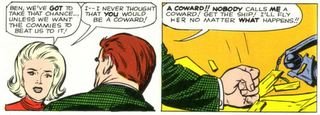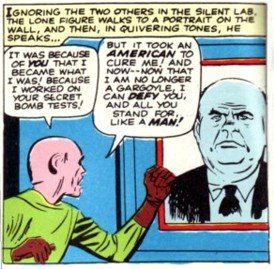Manchester: the paradise that was punk
Don't believe the contrarians, johnny-come-latelies and non-believers. Punk wasn't invented in Brooklyn by the New York Dolls. Bloodsucking fashion parasite Malcolm McLaren's tacky Kings Road shop had no part to play. Johnny Rotten was still an alterboy at Saint Patrick's Church in Leatherhead on the day it all began.
How do I know? Because I, Paul Morley, chronicler and fan, journalist and journal-ist, so to speak, was there that night, the third of October 1973, in the Dog's Trotter in Rawtenstall when deviant glamsters The Spleen Explodes crashed over, phlegming and swearing, into fully fledged punkdom. In the first eight bars of "I'll kick your fucking teeth in (and you'll thank me for it)" a terrible beauty, a terrible wonderful beauty, a terrible wonderful portentious beauty, a terrible wonderful portentious beautiful beauty, had been born. Manchester, a poor bombed out hulking industrial shell of a city, was remade as a zealously reshaped cultural cradle. Buzzcocks, The Smiths, Joy Division, The Stone Roses, Oasis, all would suck at the teat of mother-Manchester, their creations were born in the fiery furnace, the fur 'n' ace as it were, of the Western World's cultural capital.
- - -
And though there were only nine in the audience that night, what luminaries they were destined to become, as they stumbled out to the kebab shop in their tartan troos and bondage bowlers (McLaren and Vivienne Westwood sucked the marrow from the skeleton of fashion, but it was Manchester's bones they slurped). Like disciples from the foot of Jesus, they rushed off to form the bands which rebuilt civilisation. Howard Devoto. Morrissey. Siouxsie Sue. Ian Brown. Ian Curtis. Zenab Badawi. Harry Hill. Cardinal Josef Ratzinger. And, humbled and awed, me.
- - -
The Beatles have an undeserved reputation as a Liverpool band. But Liverpool, shallow and floppy and Mecca for silly band names, could never have brought forth such genius. No, the Beatles were Manchester through-and-through. John Lennon's cynicism vomited out the humiliations of his days as a bootblack on Bacup High Street. The real life Eleanor Rigby was a washer-woman at Paul McCartney's prep school in Chorlton-cum-Hardy. And what, other than his ancestral streets of Droylsden, could have inspired George Harrison to write the masterpiece that is Here comes the sun?
Ringo was a scouser, though.
- - -
Ian Curtis - sad, lost, Ian - was clinical mastermind, howling vacuum, bawling fool, all of them, none of them, no I think I've lost my grasp of this sentence.
The last time I saw Ian was outside the toilets of a Joy Division gig in the Brickmaker's Guild Memorial Hall in Pendlebury. Three weeks before his suicide, he was already tiptoeing down death row.
'Ian,' I said, 'some see you as tortured genius and revolutionary thinker, some as tuneless, Nazi-fixated mumbler, but I think you're more than that. Aren't you both messiah and traitor, a Jesus Iscariot if you like, who'll both show us the promised land but betray us on the road? Aren't you saver and enslaver?' I grasped him by the lapels. 'Aren't you a God walking the Earth as a mortal? Aren't you? Aren't you?'
'Out of the way, mate,' he said, 'I need a slash.'
How do I know? Because I, Paul Morley, chronicler and fan, journalist and journal-ist, so to speak, was there that night, the third of October 1973, in the Dog's Trotter in Rawtenstall when deviant glamsters The Spleen Explodes crashed over, phlegming and swearing, into fully fledged punkdom. In the first eight bars of "I'll kick your fucking teeth in (and you'll thank me for it)" a terrible beauty, a terrible wonderful beauty, a terrible wonderful portentious beauty, a terrible wonderful portentious beautiful beauty, had been born. Manchester, a poor bombed out hulking industrial shell of a city, was remade as a zealously reshaped cultural cradle. Buzzcocks, The Smiths, Joy Division, The Stone Roses, Oasis, all would suck at the teat of mother-Manchester, their creations were born in the fiery furnace, the fur 'n' ace as it were, of the Western World's cultural capital.
- - -
And though there were only nine in the audience that night, what luminaries they were destined to become, as they stumbled out to the kebab shop in their tartan troos and bondage bowlers (McLaren and Vivienne Westwood sucked the marrow from the skeleton of fashion, but it was Manchester's bones they slurped). Like disciples from the foot of Jesus, they rushed off to form the bands which rebuilt civilisation. Howard Devoto. Morrissey. Siouxsie Sue. Ian Brown. Ian Curtis. Zenab Badawi. Harry Hill. Cardinal Josef Ratzinger. And, humbled and awed, me.
- - -
The Beatles have an undeserved reputation as a Liverpool band. But Liverpool, shallow and floppy and Mecca for silly band names, could never have brought forth such genius. No, the Beatles were Manchester through-and-through. John Lennon's cynicism vomited out the humiliations of his days as a bootblack on Bacup High Street. The real life Eleanor Rigby was a washer-woman at Paul McCartney's prep school in Chorlton-cum-Hardy. And what, other than his ancestral streets of Droylsden, could have inspired George Harrison to write the masterpiece that is Here comes the sun?
Ringo was a scouser, though.
- - -
Ian Curtis - sad, lost, Ian - was clinical mastermind, howling vacuum, bawling fool, all of them, none of them, no I think I've lost my grasp of this sentence.
The last time I saw Ian was outside the toilets of a Joy Division gig in the Brickmaker's Guild Memorial Hall in Pendlebury. Three weeks before his suicide, he was already tiptoeing down death row.
'Ian,' I said, 'some see you as tortured genius and revolutionary thinker, some as tuneless, Nazi-fixated mumbler, but I think you're more than that. Aren't you both messiah and traitor, a Jesus Iscariot if you like, who'll both show us the promised land but betray us on the road? Aren't you saver and enslaver?' I grasped him by the lapels. 'Aren't you a God walking the Earth as a mortal? Aren't you? Aren't you?'
'Out of the way, mate,' he said, 'I need a slash.'






